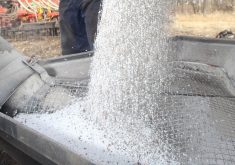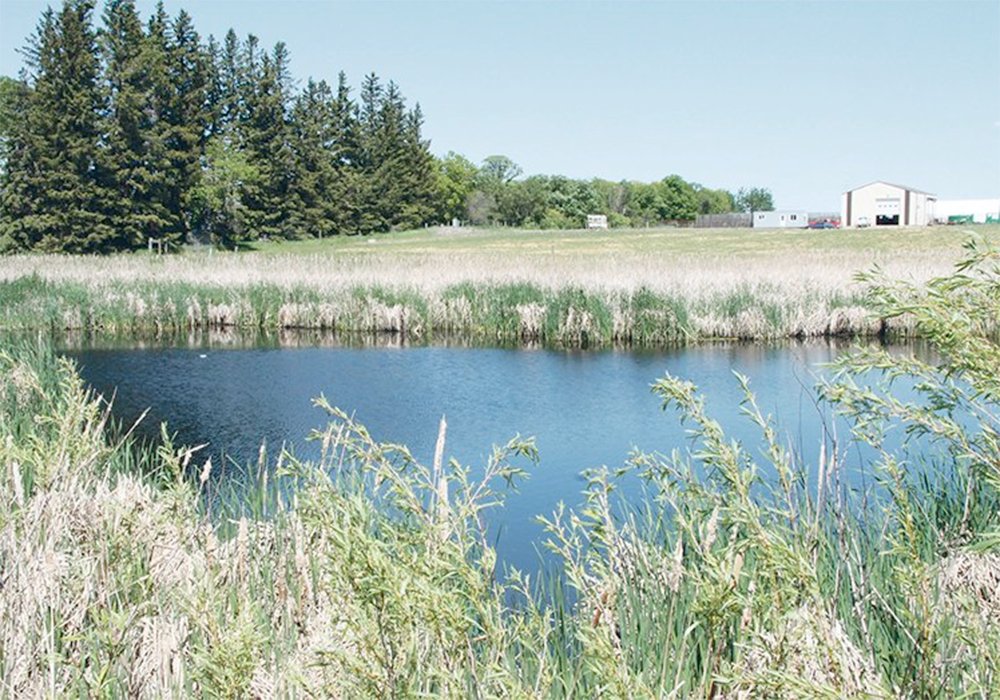Health Canada wants to ban the use of a common insecticide, but a representative of the Ontario Fruit and Vegetable Growers’ Association says the decision is deeply flawed.
On Wednesday Health Canada released a proposal to phase out the use of imidacloprid, a neonicotinoid insecticide widely used by fruit and vegetable growers across the country.
Health Canada said the ban is necessary because water bodies near agricultural land have unacceptably high concentrations of the insecticide. The levels of imidacloprid are a risk to aquatic insects, like midges and mayflies, and animals that rely on those insects for food.
Read Also

Farming Smarter receives financial boost from Alberta government for potato research
Farming Smarter near Lethbridge got a boost to its research equipment, thanks to the Alberta government’s increase in funding for research associations.
Consequently, the agency is proposing a three-year phase-out of imidacloprid or a five-year phase-out in cases where producers have no alternatives for pest control.
Craig Hunter, research and crop protection specialist with the Ontario Fruit and Vegetable Growers’ Association, completely disagrees with Health Canada and the department’s claim that current use of imidacloprid is unsustainable.
Related story: Health Canada proposes banning neonic
“In my humble opinion, if it’s like anything they (Health Canada) have produced in the last couple of years: there will be flaws,” he said.
“It (imidacloprid) has a really good record and this whole thing was done in total secrecy…. I haven’t seen anything that would lead me to say that the use, that’s on the label, is either causing a problem or is unsustainable.”
Hunter said imidacloprid was once the most commonly used insecticide in the world and the majority of fruit and vegetable growers in Canada still use the product on apples, berries, sweet corn, field tomatoes, beans and many other crops.
Health Canada made the decision without sufficient evidence to justify a ban, Hunter said.
“I’ve haven’t seen enough proof that the levels they’re finding, in the environment, are in fact real, that (the results) are, in fact, representative of all the use areas. And most importantly, even though they claim they have some numbers, they made their determination on the basis of a model,” he said. “They put numbers into a model and then said it was unsustainable.”
In a summary of its decision, Health Canada said it relied on environmental modelling and water monitoring data.
“Robust environmental monitoring from several areas of intense agricultural activity in Ontario and Quebec further support these findings as imidacloprid is detected frequently in surface water at levels well above concentrations that may result in toxic effects to insects. These regions include both outdoor mixed agricultural uses (for example, potatoes and vegetables) as well as greenhouse uses.”
Hunter, who has asked Health Canada for its complete report on imidacloprid, said a phase-out could potentially be worse for the environment.
“It’s a huge deal for growers of all the minor crops in all of Canada because a registrant who may already have a product (insecticide) registered for corn, canola, soybeans … would have to spend a lot of their own money to develop the data to register (the insecticide) for all our (specialty) crops,” he said.
“It (a ban) also means increased use of other pesticides, maybe not as effective. The net environmental (impact) could be higher.”
The proposed ban is not final. There will be a 90 day comment period, and Health Canada is planning a forum with industry stakeholders.
In addition to the proposed ban, Health Canada announced a special review of two other neonicotinoid insecticides: thiamethoxam, a Syngenta product, and clothianidin, a Bayer product.
Neonicotinoids are applied as seed treatment to almost all of the corn and canola planted in North America and a portion of soybean acres.
Contact robert.arnason@producer.com


















